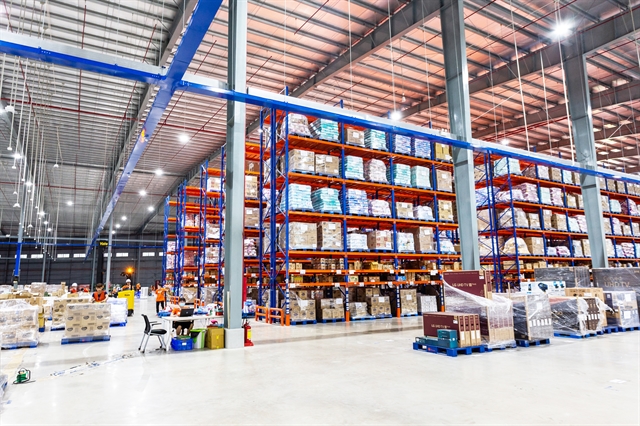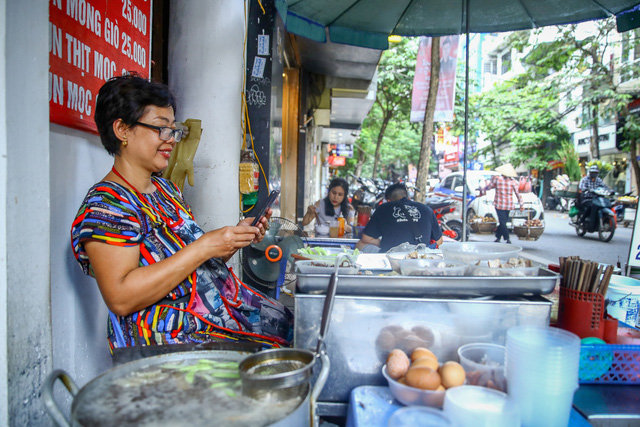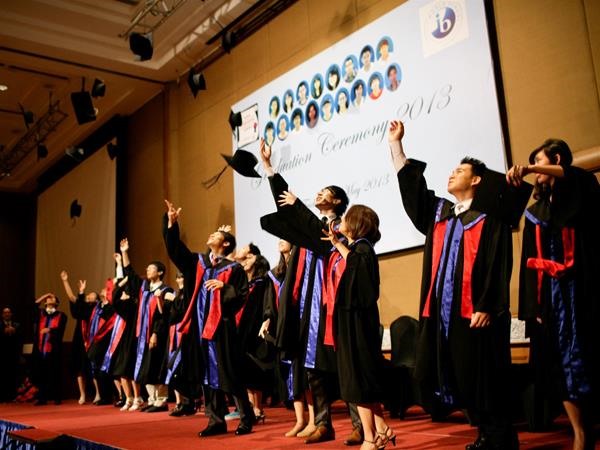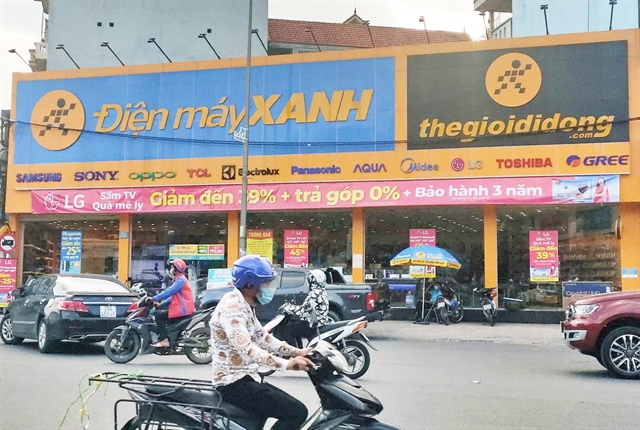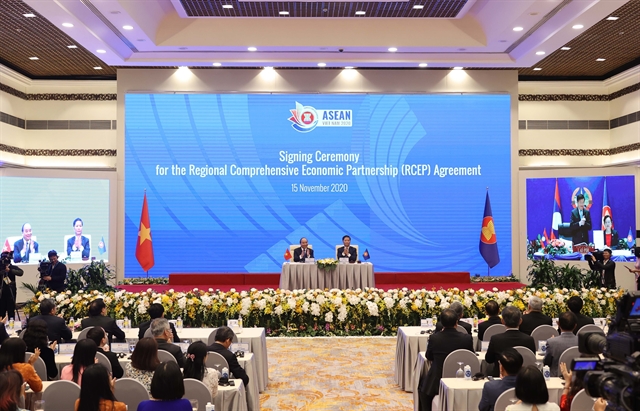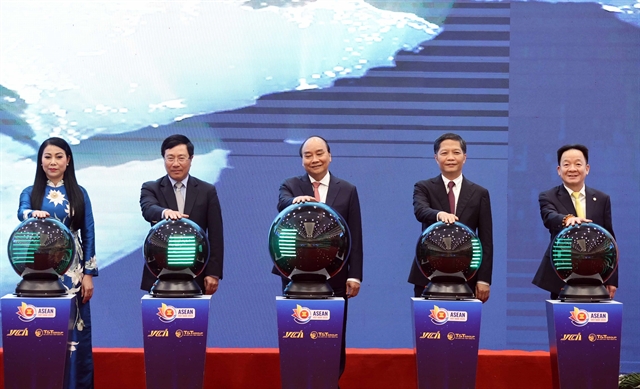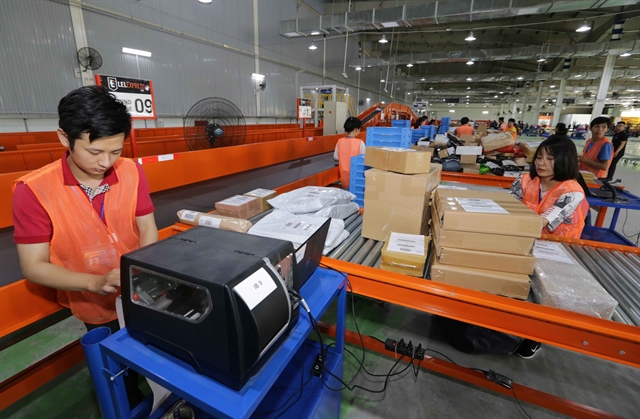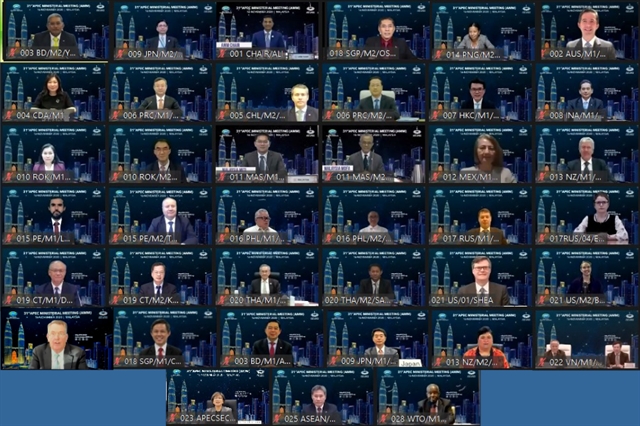
JOINT MINISTERIAL STATEMENT
31ST APEC MINISTERIAL MEETING 2020
We, the APEC Ministers, met on 16 November 2020, under the Chairmanship of The Honourable Dato’ Seri Mohamed Azmin Ali, Senior Minister and Minister of International Trade and Industry, Malaysia. This marks the first time that the APEC Ministerial Meeting (AMM) has convened virtually. We assessed the forum’s achievements in 2020, provided guidance on future work, and discussed preparations for the 2020 APEC Economic Leaders’ Meeting.
We welcome the participation of the World Trade Organisation (WTO), APEC Business Advisory Council (ABAC), Association of Southeast Asian Nations (ASEAN), Pacific Economic Cooperation Council (PECC), Pacific Islands Forum (PIF) and APEC Secretariat.
We express our deepest condolences over the tragic loss of lives and to those who are suffering due to the COVID-19 pandemic. We recognise the unprecedented economic, health and social challenges brought about by the pandemic, including the disproportionate impact on MSMEs, women and others with untapped economic potential. Together in solidarity, we reiterate our concern about the impact of COVID-19 on vulnerable developing economies. We will continue to cooperate, and act swiftly to foster quality growth, safeguard the lives and livelihoods of our people to enhance the resilience of our economies and support strong and inclusive economic recovery.
We recognise that the COVID-19 pandemic has gravely impacted the Asia-Pacific region and the entire global economy. We are committed to working together to facilitate the movement of essential goods and services across borders and, without undermining efforts to prevent the spread of the virus, explore ways to facilitate the essential movement of people across borders. We will intensify information-sharing and skills development, as well as enhance APEC’s human security agenda in order to recover from COVID-19 and promote resilient and secure growth. We commend the prompt establishment of a digital platform for information sharing on COVID-19 responses and all efforts aimed at combating COVID-19. We welcome the varied and continued efforts as well as the contribution of additional resources across APEC to combat the pandemic and support workers and sectors through the economic recovery process.
We advanced this year’s work under the APEC 2020 theme Optimising Human Potential towards a Resilient Future of Shared Prosperity: Pivot. Prioritise. Progress and the three priorities: Improving the Narrative of Trade and Investment; Inclusive Economic Participation through Digital Economy and Technology; and Driving Innovative Sustainability.
In line with these priority areas, we will continue to address issues that contribute towards the well-being of our people. To this end, we commend the discussions on indicators complementary to Gross Domestic Product (GDP), as well as on inclusive and responsible business and investment.
We welcome the completion of work on a new vision for APEC that is built on the Bogor Goals. We welcome the Final Review of APEC’s Progress Towards the Bogor Goals, which highlights the progress we have made, and identifies what more needs to be done.
Trade and Investment
We recognise the importance of a free, open, fair, non-discriminatory, transparent and predictable trade and investment environment to drive economic recovery at such a challenging time. We reaffirm the APEC Ministers Responsible for Trade (MRT) Statement on COVID-19, the Virtual MRT Statement and the Declaration on Facilitating the Movement of Essential Goods. We reiterate that any emergency trade measures designed to address COVID-19 should be targeted, proportionate, transparent, temporary, do not create unnecessary barriers to trade, and are consistent with WTO rules.
We affirm the importance of agreed-upon rules in the WTO, which enhance market predictability, enable business’ confidence and allow trade to flow. We will continue to engage constructively on WTO issues, including by supporting the necessary reform to improve its functioning. We call for on-going WTO negotiations to be expedited, and APEC participants in Joint Statement Initiatives call for progress, in the lead up to the 12th WTO Ministerial Conference (MC12). We take note of ABAC’s call for APEC to continue supporting the multilateral trading system.
We will further advance the economic integration in the region, in a manner that is market-driven, including through the work on the Free Trade Area of the Asia-Pacific (FTAAP) agenda which will contribute to high quality and comprehensive regional undertakings.
Digital Economy and Technology
The COVID-19 pandemic has underscored the role of digital economy, transformation and technology in sustaining economic growth. We recognise the need to support innovation to safeguard the region from health threats and strengthen the resilience of health systems and quality of healthcare, including through the utilisation of digital technologies. There is an urgent need to enhance access to opportunities stemming from digital economy and develop innovative digital ecosystems to harness new and emerging digital technologies. We encourage application of new technologies to drive innovation and endeavour to expedite work towards improving digital inclusion, increasing competency in digital skills and narrowing the digital divide as these are core drivers for inclusive economic participation. We instruct Senior Officials to accelerate the implementation of the APEC Internet and Digital Economy Roadmap (AIDER) and welcome the APEC Roadmap on Digital Financial Inclusion.
A reliable, interoperable, open, accessible and secure ICT environment leads to a more interconnected and inclusive region. We urge members to share best practices to harness the opportunities of digital economy and foster an enabling environment, acknowledging the importance of cooperation on facilitating the flow of data and strengthening consumer and business trust in digital transactions.
Structural Reform
An enabling environment, that is market-driven and supported by innovation, is critical to increase economic opportunities for all segments of society. Structural reform serves as a key driver for prosperity, business recovery, as well as strong, sustainable, balanced and inclusive growth. We note the progress towards the new action agenda on structural reform and urge Economies to take pragmatic steps to advance the agenda in 2021 and beyond, including by finalising the enhanced structural reform agenda.
We note the 2020 APEC Economic Policy Report (AEPR) on Structural Reform and Women’s Empowerment. Women still face significant structural barriers that affect their economic participation and security, including their access to digitally enabled services. We are committed to undertake the necessary steps to address these challenges and advance efforts to remove existing legal, regulatory and structural barriers faced by women in the economy, in workforce participation and entrepreneurship. We reaffirm our commitment to adopt approaches, substantive measures and policies that focus on economic recovery efforts to benefit and empower women and girls. We are executing the La Serena Roadmap for Women and Inclusive Growth Implementation Plan, in order to realise the full potential of women and advance their full and equal participation in the economy.
The economic disruption caused by the COVID-19 pandemic has brought about significant changes to our present and future work setting. There is a pressing need for further cooperation among Economies to equip people with the necessary knowledge, skills and training for a highly digitalised work environment. We look forward to the 2021 AEPR on Structural Reform and the Future of Work.
Economic and Technical Cooperation
Cognisant of the interdependence among low-carbon and climate-resilient green growth, regional economic prosperity and a healthy planet, we endeavour to strengthen our economic and technical cooperation to deliver economic policies that complement our efforts to achieve sustainable development and address all environmental challenges, including climate change, extreme weather and natural disasters. We recognise the essential role of energy security, energy resilience as well as affordable and reliable access to energy using the widest variety of fuels and technologies, which will advance transitions to cleaner energy, support sustainable economic growth, and achieve a strong and inclusive economic recovery.
Recognising the importance of sustainable management of natural resources and noting the region’s rapid population growth and urbanisation, we welcome APEC’s work to support resource efficiency by exploring ways to safely and innovatively manage waste and note the work on smart and sustainable cities. We are pleased that the Multi-Year Policy Dialogue on Innovative Waste Management has commenced and is expected to continue until 2022. The Dialogue serves as a platform to pursue policy recommendations that enable efficient and sustainable management of resources and waste along the supply chain. We have reviewed existing priorities and identified future opportunities for enhancing regional food security and safety, as well as reducing food loss and waste, including through public-private partnership. We note the review of the Food Security Roadmap 2020 and the implementation of the Multi-Year Action Plan on Food Security and Climate Change and the Strategic Framework on Rural-Urban Development.
We remain focused on the need to promote responsible resources management, including ocean conservation and the sustainable use of marine and forest resources. We note the work on combatting illegal, unreported and unregulated (IUU) fishing, illegal logging and associated trade, as well as addressing marine debris.
We note the final assessment of the APEC Strategy for Strengthening Quality Growth, and acknowledge the importance of promoting institution building, enhancing social cohesion, and mitigating harmful environmental impacts, towards strong, balanced, inclusive, sustainable, innovative and secure growth in the region, in support of global efforts including the 2030 Agenda for Sustainable Development.
We acknowledge the serious threats posed by corruption to Economies, as it erodes trust in institutions, hampers economic development, and further exacerbates inequality and social division. We intend to continue to nurture and sustain good governance, economic development, and prosperity by working together to prevent and fight corruption and ensure transparency.
We reaffirm our commitment towards financial stability in the region. We acknowledge the on-going need to advance stimulus measures to help economic recovery, while underscoring the importance of improving fiscal sustainability and transparency to support long-term resilient development and future financing needs. We welcome international organisations and financial institutions’ efforts in assisting APEC’s economic responses through the crisis and into recovery.
We reaffirm our commitment to strengthen physical, institutional and people-to-people connectivity by 2025, in line with the APEC Connectivity Blueprint and note the Mid-Term Review of the Blueprint. We look forward to enhancing digital technology, facilitating seamless connectivity, developing quality infrastructure based upon relevant APEC work, promoting trade facilitation and strengthening supply chain resilience, as well as promoting cooperation on mobility of people. We note the progress towards an eventual launch of the Virtual APEC Business Travel Card (ABTC).
Other Thematic and Institutional Matters
For APEC to remain relevant and true to its core objectives, we urge APEC committees and sub-fora to be more modern, inclusive, effective and efficient, responsive to future challenges and forward-looking.
We emphasise the importance of cross-fora collaboration and engagement with other regional and international organisations. We value our close cooperation with ABAC, PECC, ASEAN Secretariat and PIF. We commend the APEC Secretariat and PSU for furthering the region’s agenda and advancing the priorities for the year.
We note the SOM Chair’s Report of APEC’s work and the ABAC Chair’s report. We endorse the Committee on Trade and Investment (CTI) Annual Report to Ministers. We note the Senior Officials’ Report on Economic and Technical Cooperation. We approve the APEC Secretariat Account Budget and corresponding level of Members’ Contributions for 2021.
We extend our gratitude to Malaysia for its determined efforts and able leadership in hosting APEC throughout this challenging year. We commend Malaysia for its unwavering commitment and pioneering role in navigating APEC meetings this year, in a virtual format. We look forward to New Zealand’s chairing in 2021. VNS
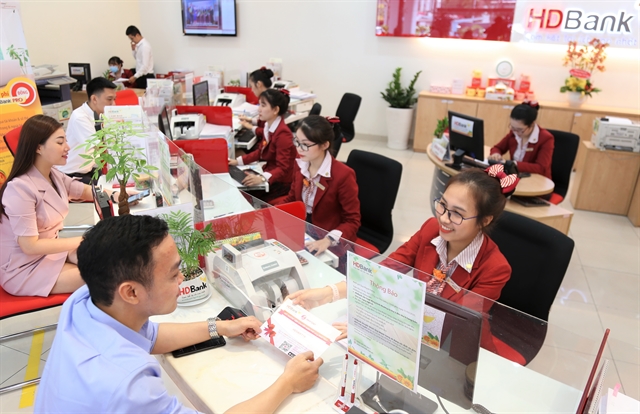
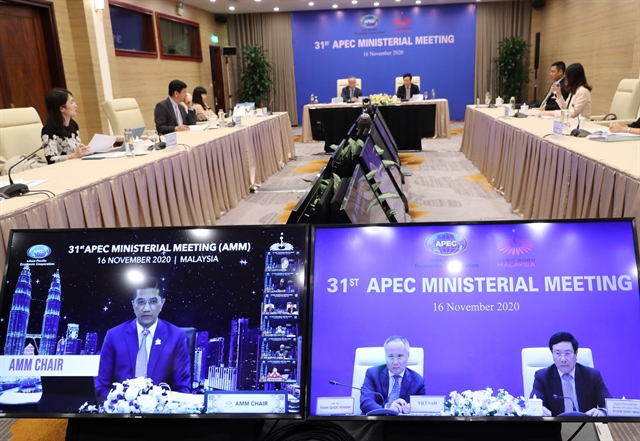
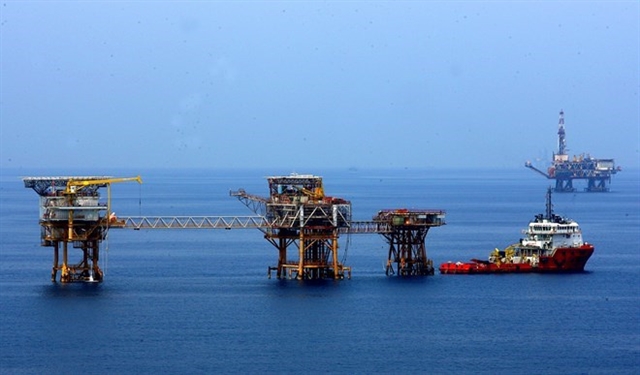

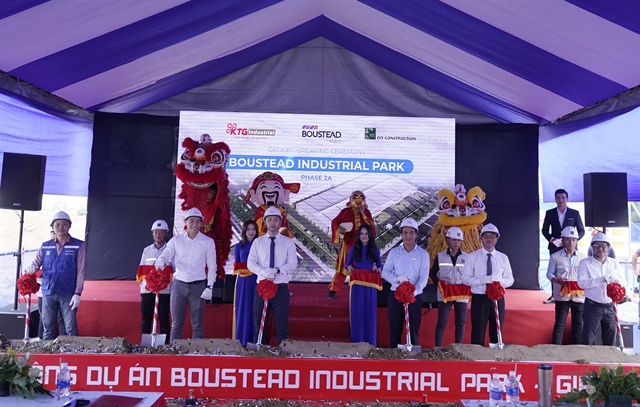

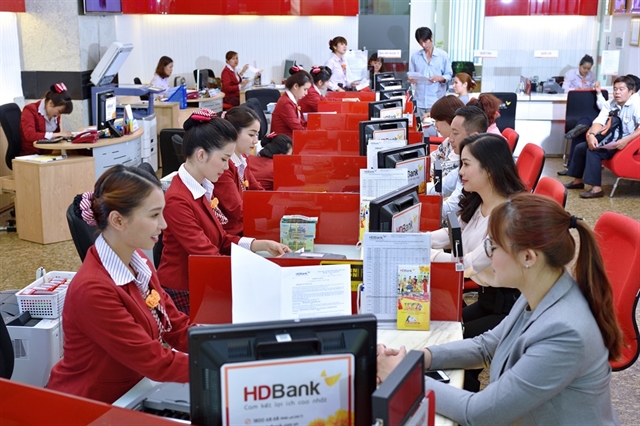
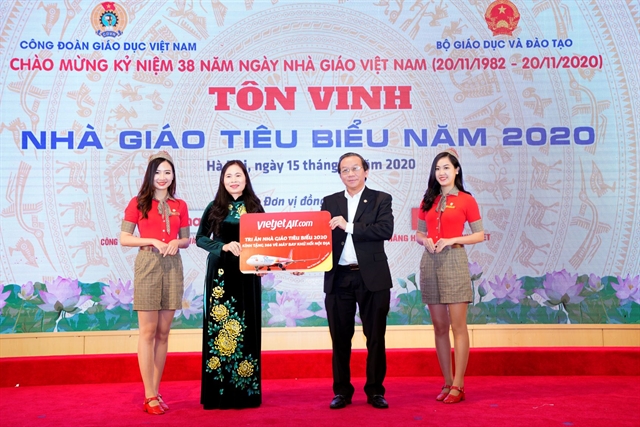
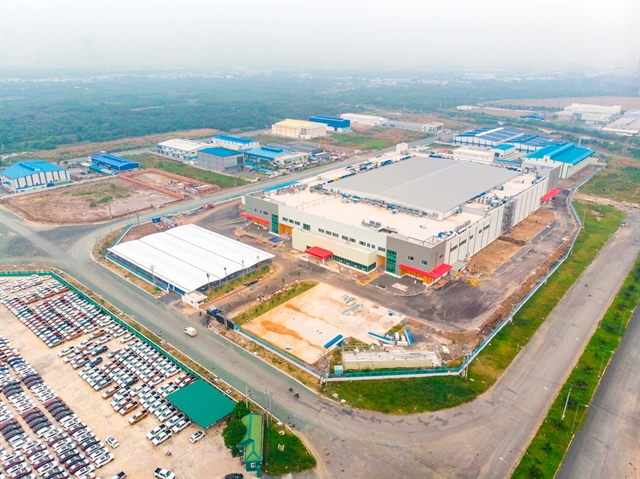
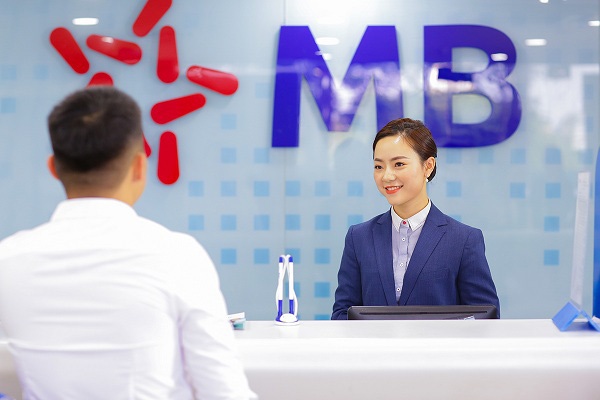
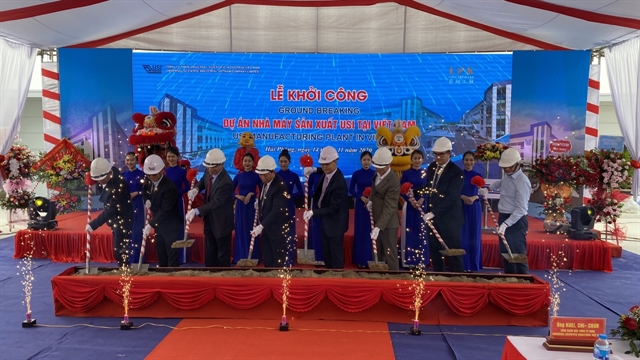
.jpg)
